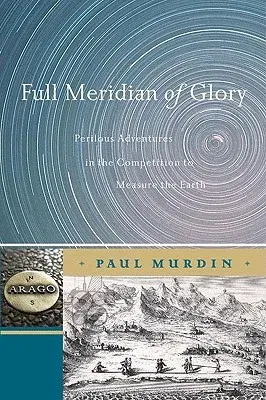The Paris Meridian is the name of the line running north-south through
the astronomical observatory in Paris. One of the original intentions
behind the founding of the Paris Observatory was to determine and
measure this line. The French government financed the Paris Academy of
Sciences to do so in the seventeenth to nineteenth centuries. It
employed both astronomers - people who study and measure the stars - and
geodesists - people who study and measure the Earth. This book is about
what they did and why.
This is the first English language presentation of this historical
material. It is attractively written and it features the story of the
community of scientists who created the Paris Meridian. They knew each
other well - some were members of the same families, in one case of four
generations. Like scientists everywhere they collaborated and formed
alliances; they also split into warring factions and squabbled. They
travelled to foreign countries, somehow transcending the national and
political disputes, as scientists do now, their eyes fixed on ideas of
accuracy, truth and objective, all enduring values - yet when the
reception given to their own work was concerned some became blind to
high ideals and descended into petty politics.
To establish the Paris Meridian, the scientists endured hardship,
survived danger, and gloried in amazing adventures during a time of
turmoil in Europe consisting of the French Revolution and the Napoleonic
War between France and Spain. Some were accused of witchcraft. Some of
their associates lost their heads on the guillotine. Some died of
disease. Some won honor and fame. One became the Head of State in
France. Some found dangerous love in foreign countries. One scientist
was killed in self defence when attacked by a jealous lover, another was
himself killed by a jealous lover, a third brought back a woman to
France and then jilted her, whereupon she joined a convent...
The scientists worked on practical problems of interest to the
government and to the people. They also worked on one of the most
important intellectual problems of the time, a problem of great interest
to their fellow scientists all over the world- the theory of universal
gravitation. They succeeded in their intellectual work while affecting
politics and the affairs of state; their endeavours have left marks on
the landscape, in art, and in literature still visible today.

